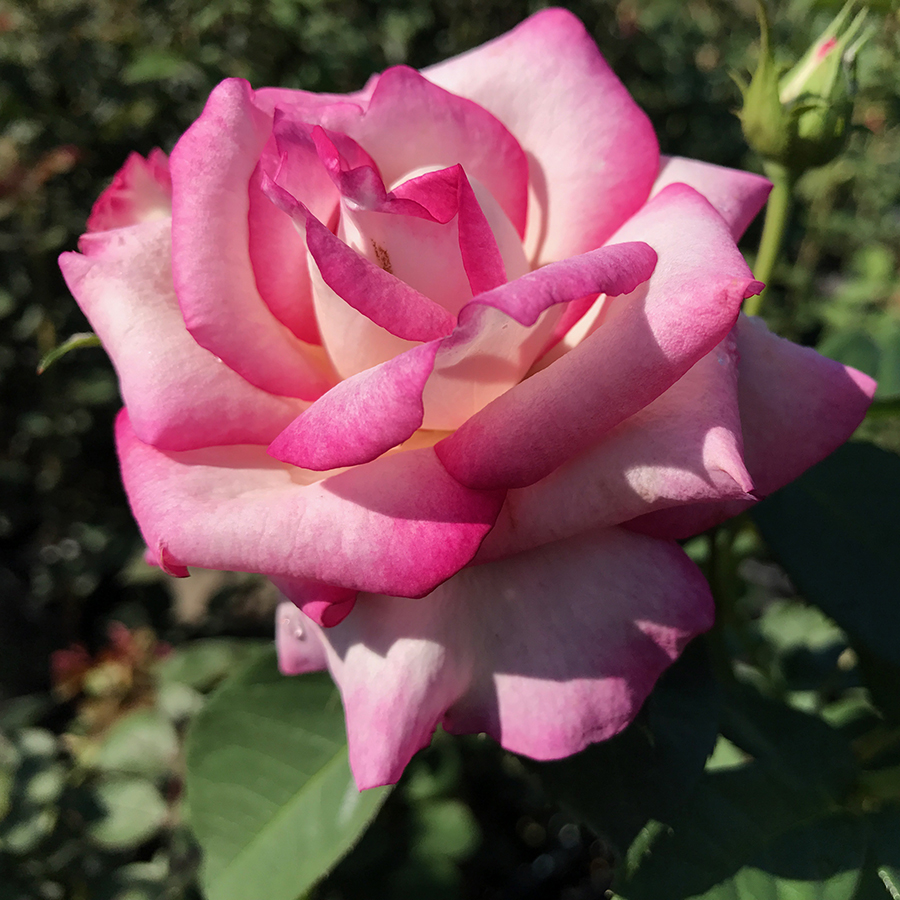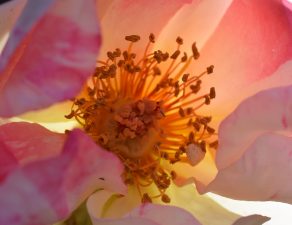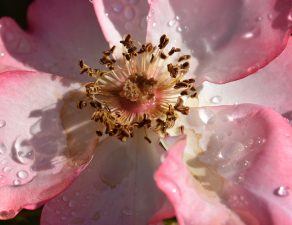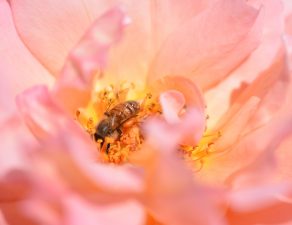
Your roses will be in full bloom this summer, offering luscious scents and beautiful blooms for you to enjoy. But since many roses can be a bit picky, follow these tips to properly care for them during the hot summer months.
Watering is essential.
Roses can suffer in hot, dry weather, so ensure that you’re watering them on a schedule. A deep soaking, about every two weeks, is preferable to more frequent but shallow waterings. Apply water directly to the soil, rather than overhead, because wet foliage can lead to various diseases.
Mulch to preserve moisture.
To ensure your deep waterings are effective, help the soil retain moisture by mulching around your roses. Use two to four inches of wood chips, pine needles, shredded bark, or cocoa bean hulls in your rose beds.
Fertilize.
Roses should be fertilized three times per year: First in the spring right after pruning, then during the first bloom period, and then once more in mid to late July. Use a 5-10-5 or 10-10-10 fertilizer, and water deeply afterward.
Deadhead to preserve energy.
To conserve the plant’s energy and encourage repeat blooming, remove faded blooms regularly. During the first year of a rose plant’s life, remove only above the uppermost 3-leaflet leaf. In established plants, you can cut back the stem to a 5-leaflet leaf. Leave at least two 5-leaflet leaves on each shoot.
Ward off pests and diseases.
Diseases are more prevalent during times of rainy weather, due to retained moisture on foliage. During these times remember to use a fungicidal spray, and use the treatment regularly before symptoms of disease appear. Spray both the tops and undersides of leaves.
As for insects, you can opt for an insecticidal spray, or go for a more natural approach. Mix one tablespoon of vinegar with one cup of water. Then add one and a half tablespoons of baking soda, one tablespoon of dish soap, and one tablespoon of vegetable oil. Stir this solution into one gallon of water, and spray your plant’s foliage thoroughly to ward off pests.
And, of course, the old trick of releasing ladybugs to control an aphid population will often work perfectly.
If you have any more questions about roses in relation to your landscaping, feel free to give us a call. We can help you learn how to keep your roses in tip-top shape all year.







